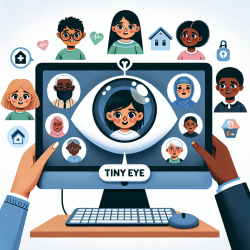As a practitioner deeply invested in improving outcomes for children through online therapy, staying updated with historical and contemporary research is crucial. One particularly enlightening piece is the 1935 study by William Wood Gerhard, presented at the Medical History Seminar at the University of Wisconsin. Despite its age, this research offers timeless insights that can significantly enhance your practice.
Gerhard's research meticulously examines early methods of diagnosis and treatment, offering a wealth of data-driven insights. By implementing these findings into your practice, you can make more informed decisions and achieve better outcomes for your young clients.
Key Takeaways from Gerhard's Research
Gerhard's study is a treasure trove of information, but a few key points stand out for practitioners looking to improve their skills:
- Comprehensive Diagnosis: Gerhard emphasized the importance of a thorough and multifaceted diagnostic process. This is particularly relevant in online therapy, where practitioners might not have the benefit of physical interaction. Implementing a comprehensive diagnostic approach can help you gather more accurate data, leading to more effective treatment plans.
- Holistic Treatment: One of Gerhard's significant contributions was advocating for a holistic approach to treatment. This means considering not just the immediate symptoms but also the broader context of the child's life, including family dynamics, school environment, and emotional well-being. Integrating this holistic perspective into your online therapy sessions can lead to more sustainable and impactful outcomes.
- Data-Driven Decisions: Gerhard was a pioneer in using data to inform medical decisions. In today's digital age, you have access to a plethora of data collection tools. Utilizing these tools to track progress, measure outcomes, and adjust treatment plans based on empirical evidence can greatly enhance the efficacy of your interventions.
Practical Steps to Implement Gerhard's Findings
So, how can you translate these historical insights into practical steps for your online therapy practice? Here are some actionable strategies:
- Enhance Your Diagnostic Tools: Invest in advanced diagnostic tools that can be used remotely. This might include online assessments, video observations, and digital questionnaires. Ensure these tools are comprehensive and cover multiple aspects of the child's development and environment.
- Adopt a Holistic Approach: During your initial consultations, take the time to understand the child's broader context. Ask questions about their family life, school experiences, and emotional state. Use this information to create a more holistic and personalized treatment plan.
- Leverage Data Analytics: Utilize data analytics software to track your clients' progress over time. Regularly review this data to identify trends, measure the effectiveness of your interventions, and make necessary adjustments. This data-driven approach will help you provide more targeted and effective therapy.
Encouraging Further Research
While Gerhard's research provides a solid foundation, the field of speech-language pathology is ever-evolving. Staying current with the latest research and continuously seeking out new studies is essential for maintaining a high standard of care. Here are some tips to encourage ongoing research:
- Join Professional Organizations: Organizations like the American Speech-Language-Hearing Association (ASHA) offer a wealth of resources, including access to the latest research, professional development opportunities, and networking events.
- Attend Conferences: Make it a point to attend relevant conferences and seminars. These events are excellent opportunities to learn about the latest advancements in the field, share your experiences, and gain new insights.
- Collaborate with Peers: Collaborate with other professionals in your field. This can be through formal research projects, peer review, or simply sharing best practices. Collaborative efforts often lead to new discoveries and improved methods.
By integrating the timeless insights from Gerhard's research with contemporary practices and ongoing learning, you can significantly enhance your skills and improve outcomes for the children you serve.
To read the original research paper, please follow this link: William Wood Gerhard*Read before the Medical History Seminar, University of Wisconsin.










